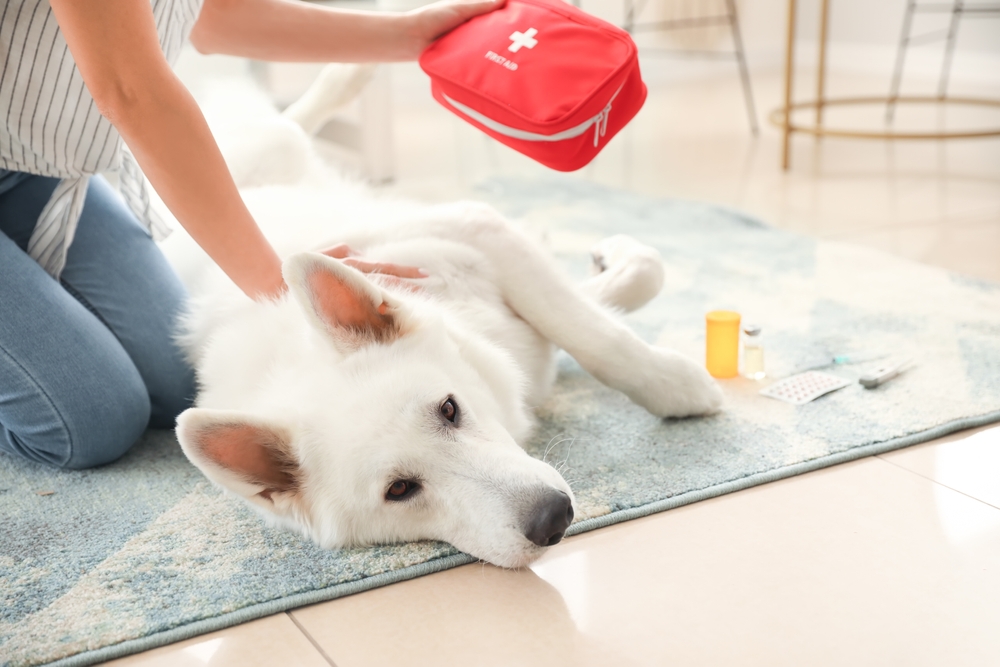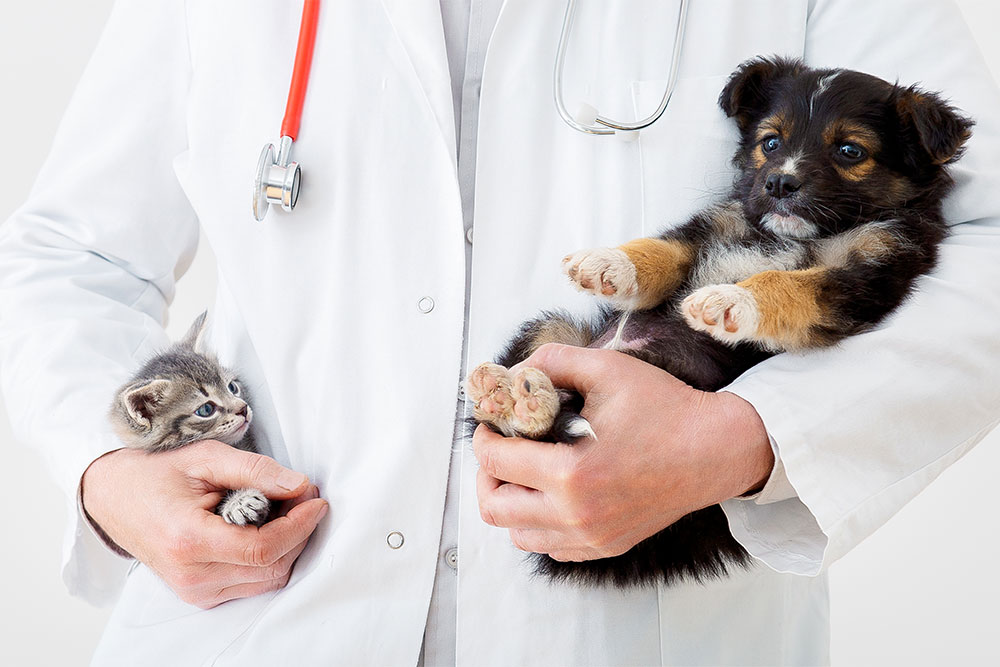From Whimpers to Warnings: A Vet’s Guide to Young Pet Emergencies
Welcoming a new puppy or kitten into your home is a mix of excitement, laughter, and a bit of worry. One moment they’re zooming through the living room, the next they’re chewing something questionable- or darting toward the door. Young pets are naturally curious and impulsive, which makes them especially prone to accidents and health emergencies.
At the Veterinary Medical Center of Indian River County, we want you to feel prepared. From spotting the early red flags to knowing when to call, our goal is to help you protect your growing companion. And when emergencies do happen, you can count on us: Our emergency and critical care team is always here, day or night. If you’re ever uncertain, call- we’re happy to advise over the phone. Veterinary emergency services are available 24/7, 365 days a year. When the unexpected strikes, you’re never alone.
When Curiosity Turns Critical
Not every stumble or whimper is a crisis, but young pets can deteriorate quickly if something is wrong. If you’re unsure, use this AVMA guide to animal emergencies as a reference- and always trust your instincts.
Call immediately if you notice:
- Difficulty breathing
- Persistent vomiting or diarrhea
- Seizures or collapse
- Ingestion of toxic substances
- Bleeding, visible trauma, or sudden lameness
- Weakness, extreme lethargy, or pale gums
Common Emergencies in Puppies and Kittens
Toxic substances
Kittens and puppies love to explore with their mouths, which often leads them to dangerous items. Medications, cleaning supplies, chocolate, grapes, onions, and even common houseplants are all culprits. You can review the ASPCA’s list of toxic and non-toxic plants to help pet-proof your space.
Signs of poisoning include vomiting, drooling, tremors, seizures, or sudden collapse. Don’t try to induce vomiting unless instructed. Treatment may involve activated charcoal, IV fluids, or hospitalization. Prevention starts with thoughtful pet-proofing at home.
Parvovirus and parasites
Parvovirus is one of the most dangerous illnesses in puppies who aren’t fully vaccinated. Symptoms include vomiting, bloody diarrhea, lethargy, and dehydration. Treatment requires hospitalization and intensive care.
Parasites also pose a major threat. Worms, fleas, and ticks can cause anemia, diarrhea, and systemic illness. Canine diarrhea is often linked to parasites, spoiled food, or infections in young pets. Preventive care- vaccines, deworming, and parasite control- is essential. Until your veterinarian clears your puppy, avoid dog parks and unknown animals.
Hypoglycemia
Low blood sugar is common in toy breeds and very young pets. Signs include weakness, tremors, confusion, or seizures. If your puppy or kitten seems wobbly and hasn’t eaten, rubbing Karo syrup on the gums (only if they’re conscious) can help while you head in. Feeding small, frequent meals prevents most cases.
Foreign body ingestion
Chewing and swallowing socks, strings, or toy pieces can cause obstructions. Watch for vomiting, abdominal pain, straining, or appetite loss. These often require imaging and may need surgery. Keep unsafe items out of reach and provide safe toys suited to your pet’s size.
Trauma and accidents
Playful clumsiness can quickly turn serious. Common risks include:
- Falling from furniture or stairs
- Getting stepped on or shut in doors
- Escaping outside and being hit by a car (especially without recall or leash training)
- Bites from other pets (dog parks and rough play carry extra risk)
Signs include limping, swelling, breathing difficulty, pale gums, or collapse. Keep your pet calm and still on the way to us. We’ll use X-rays or ultrasound to evaluate for fractures and internal bleeding.
Chewing hazards and “garbage gut”
Electric cords can cause burns or electrocution, while unsafe chews may fracture teeth or splinter. Always choose approved toys and review the potential dangers of popular dog chews.
Raiding trash cans- “garbage gut”- can lead to vomiting, diarrhea, and toxin exposure. Secure all trash and keep counters clear.
Preparing Financially for Emergencies
No one likes to think about it, but emergency care can be costly. Planning ahead helps you act quickly when your pet needs urgent help.
- Pet insurance: Policies can offset unexpected costs. Learn more about pet insurance basics and explore details with this Pawlicy guide.
- Savings accounts: A dedicated pet savings fund provides immediate access to funds while you’re waiting for insurance to reimburse you.
- Know the costs: The ASPCA estimates cat ownership costs and the cost of owning a dog so families can plan realistically.
- Breed risk awareness: Some breeds are more prone to emergencies due to genetics. Review breed-specific health risks and high-risk breeds to understand what your pet may face.
Financial preparation ensures you can say “yes” to lifesaving care in critical moments.
How to Stay Ready
- First-aid kit: Stock gauze, bandages, antiseptic wipes, a thermometer, and a carrier.
- Know your pet’s normal: Appetite, bathroom habits, and activity levels are your baseline. Use this Humane Society guide to a home exam for reference.
- Emergency basics: Take a Red Cross pet first-aid class for hands-on skills. If your pet chokes, follow AKC Heimlich instructions with caution and always seek follow-up care.
- Emergency resources: Bookmark the ASPCA emergency care guide for quick reference.

Your Partner in 24/7 Emergency Care
At the Veterinary Medical Center of Indian River County, we are here whenever you need us- day or night, weekends, and holidays. With a dedicated emergency and critical care team, advanced diagnostics, and full surgical capabilities, your pet will always have access to the urgent care they need.
If you’re ever unsure, don’t wait. Contact our team immediately, or get to know us here. For details about what we provide, visit our emergency services page. Emergencies are stressful, but with preparation- and with us by your side- you can protect your pet and give them the best chance at a healthy future.







Leave A Comment